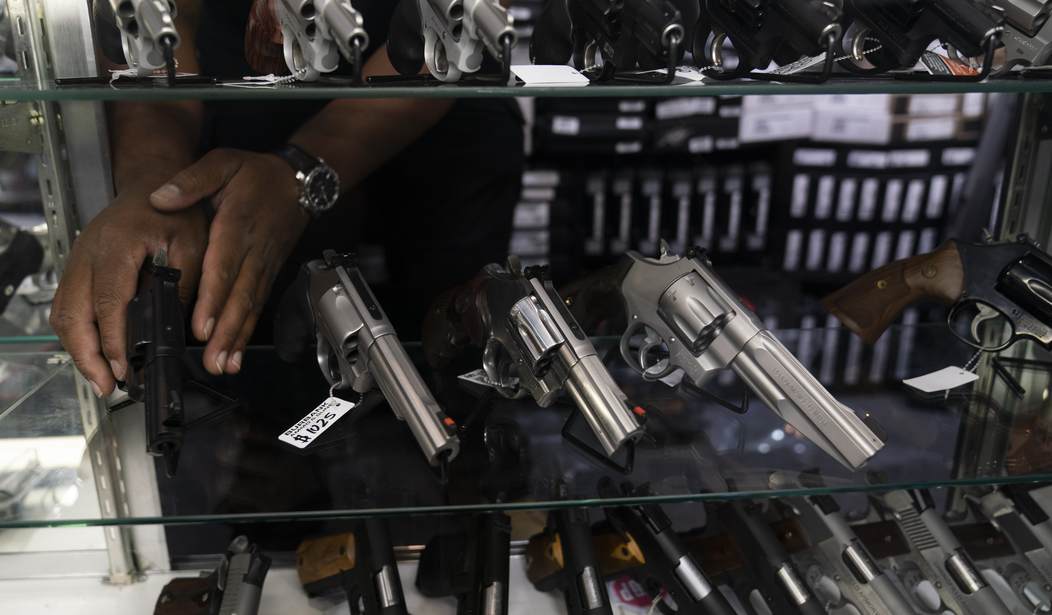The Supreme Court on Thursday handed down its ruling in New York Rifle & Pistol Association v. Bruen, which obliterated New York’s onerous gun licensing scheme and similar restrictions in other states. The anti-gunner lobby was dismayed by the decision, but for others, it is seen as a significant step in the right direction when it comes to safeguarding gun rights. But now that the decision has been made, how will this situation play out in the future?
In a 6-3 decision, the court ruled that the Second Amendment protects the right of people to carry firearms outside of their homes and struck down New York’s “proper-cause” requirement. This forced would-be license holders to prove to a state official that they had a valid need to carry a gun outside of their home. Justice Clarence Thomas wrote the opinion in which he argued that this law violated the 14th amendment because it prohibited law-abiding citizens with ordinary self-defense needs from carrying a firearm.
In a concurring opinion, Justice Samuel Alito wrote:
The police cannot disarm every person who acquires a gun for use in criminal activity; nor can they provide bodyguard protection for the State’s nearly 20 million residents or the 8.8 million people who live in New York City. Some of these people live in high-crime neighborhoods. Some must traverse dark and dangerous streets in order to reach their homes after work or other evening activities. Some are members of groups whose members feel especially vulnerable. And some of these people reasonably believe that unless they can brandish or, if necessary, use a handgun in the case of attack, they may be murdered, raped, or suffer some other serious injury.
The Supreme Court’s ruling establishes a very high bar for states and cities seeking to impose gun restrictions. If a government wishes to pass a gun law, it must show that the proposed regulation already existed, or is consistent with a regulation that existed at the time the Second Amendment was enshrined. If a proposed measure does not meet those criteria, it will be deemed unconstitutional. In essence, there will now be more scrutiny on governments seeking to issue new gun restrictions than on those who wish to obtain and carry firearms.
It’s a strong ruling, but this does not mean the anti-gunners in state and local governments will not still try to figure out ways to make it harder for law-abiding Americans to obtain and carry firearms. California, which has a gun licensing scheme similar to New York’s, is already looking into subverting the court’s ruling. LAist reported that even the Golden State’s Democratic attorney general conceded that its law “is likely to be found unconstitutional under Thursday’s ruling.”
However, it is important to note that the Supreme Court’s ruling does not immediately strike down these laws. They would still need to be challenged in court before a state is not allowed to enforce them. This means California’s licensing scheme is still in effect for the time being – but its days are certainly numbered. It is already expected that gun rights groups will immediately be challenging the rule in court. Still, it will take some time before the state’s licensing scheme is no more.
It is also worth noting that the court’s decision still leaves room for other gun control measures. Governments can still prohibit firearms in certain “sensitive” locations like schools, courthouses, government buildings, and polling places. From LAist:
California Attorney General Rob Bonta and Democratic leaders of the state legislature say they intend to make use of this flexibility. On Thursday, they announced plans for fast-tracked legislation that would make certain areas off-limits to a concealed firearm.
The attorney general and State Sen. Anthony Portantino (D-La Cañada Flintridge) said they’re still working out the details of exactly which “sensitive places” the state would place off-limits for concealed weapons, though Bonta said the list would be longer than the court’s. He suggested that parks, amusement parks and sporting venues would likely be off-limits to concealed weapons if the forthcoming legislation passes.
New York City Mayor Eric Adams indicated he would also be seeking ways to further limit the ability to carry guns. During a press conference on Thursday, he said the Supreme Court’s ruling “ignores the shocking crisis of gun violence every day” and “does not account for the reality of today.” He vowed to look into defining “sensitive locations” where citizens would be barred from carrying a handgun even with a license. Right now, the few who are allowed to carry firearms have broad latitude to have their weapons in various areas – but this will likely change soon.
In light of this, we can expect to see quite a bit more litigation on guns in the future. As anti-gun Democrats trying to push the envelope when it comes to restrictions, more plaintiffs will file lawsuits to stop them. It is even possible that more will make it to the highest court just as Bruen did. Nevertheless, this particular ruling remains a tremendous triumph for gun rights.













